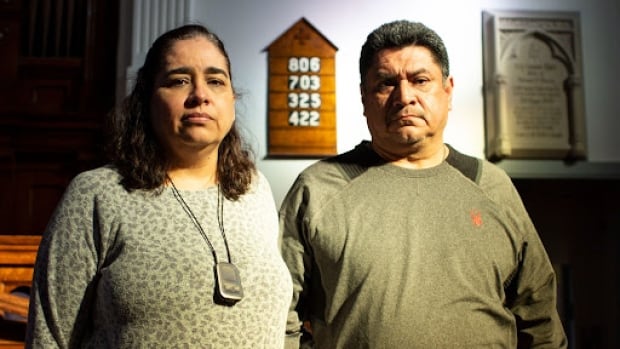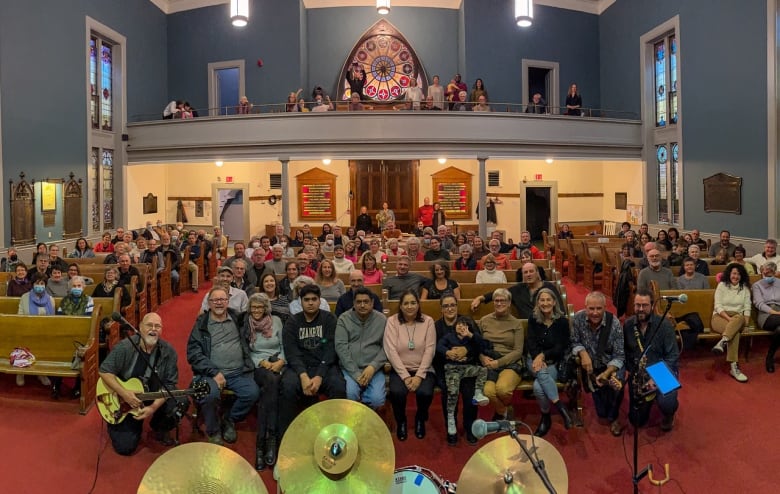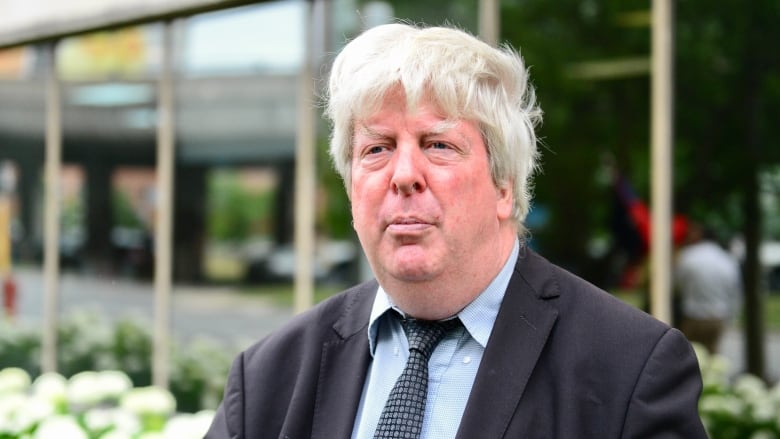
The legal fight to stay in Canada is far from over for a Mexican family of three, but they’ve received some good news in time for the holiday season.
Manuel Rodriguez, his wife and their 19-year-old son are finally able to step outside and do something as simple as going for a short walk in Sherbrooke, Que., without running the risk of being arrested and then deported.
This week, the family learned that the warrant for their arrest has been lifted. The family has also been given a temporary resident permit (TRP) and will not have to worry about deportation for 18 months.
“I feel very, very happy. I don’t know what to say,” Rodriguez told CBC News while standing outside for the first time in at least a year.
“Now, I can go see my friends, go out with them and for that, there no words to explain.”
The three had been living in a church basement, seeking sanctuary there as a way to avoid being sent back to Mexico.
The concept of sanctuary is an ancient tradition whereby fugitives find temporary shelter in places of worship. Although it’s not legally binding, border officials generally respect the principle.
The family says a drug cartel in their hometown of Torreón, Coahuila could kill them if they go back.
Being unable to go outside while living at the Plymouth-Trinity United Church took an emotional toll on the family. It also made for a less than ideal holiday season last year.
Georgina Flores, Rodriguez’s wife, has described last year’s Christmas “the saddest of out entire lives.”
The family relishes the opportunity to make the most of the holidays. Rodriguez and Flores will be able to gather with their second child — a daughter who also lives in Sherbrooke, with her husband and two children.

‘Thank you very much … for freedom’
A temporary resident permit is issued to people to allow them to enter or stay in Canada for a time even if they are considered inadmissible. According to the federal government’s website, issuing the permit helps Canada meet its “social, humanitarian and economic commitments, while maintaining the health and security of Canadians.”
The family first entered the country in 2009 but were quickly turned away under the Safe Third Country Agreement.
After entering the country a separate time in 2018, they applied for a pre-removal risk assessment, which asylum seekers can request if they are ineligible for refugee status but believe they are at risk of torture, persecution or death if they are deported.
Quebec AM5:04Rodriguez-Flores family allowed to leave church sanctuary after a year living in basement
The three members of the Rodriguez Flores family were living at the Plymouth Trinity Church in sanctuary to avoid being deported back to Mexico. The family says if they go back, they will face violent reprisals from drug cartels. Stewart Istvanffy is the lawyer representing the family. He explained to guest host Peter Tardif what has changed in their legal standing.
In October 2021, the request was denied and the order for the family’s removal was issued. That’s when they sought sanctuary at the church.
With the family now safe from deportation for at least a year and a half, their lawyer hopes Immigration, Refugees and Citizenship Canada (IRCC) will examine their case — something he says hasn’t really been done since they came to Canada the second time.
“What’s important for us is that someone look at the case and realize that these people really are in danger,” said Stewart Istvanffy. “They’re being hunted by one of the most dangerous cartels in the world.”

In the last year, the family has received lots of support from people in and around Sherbrooke in the form of donations, psychological support and free French lessons.
“We are very, very grateful for everyone that has supported us,” Flores said.
“Thank you very much…for freedom.”